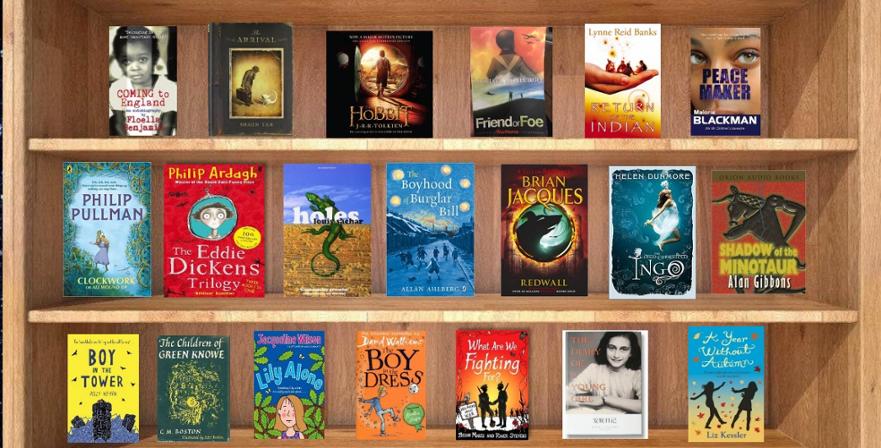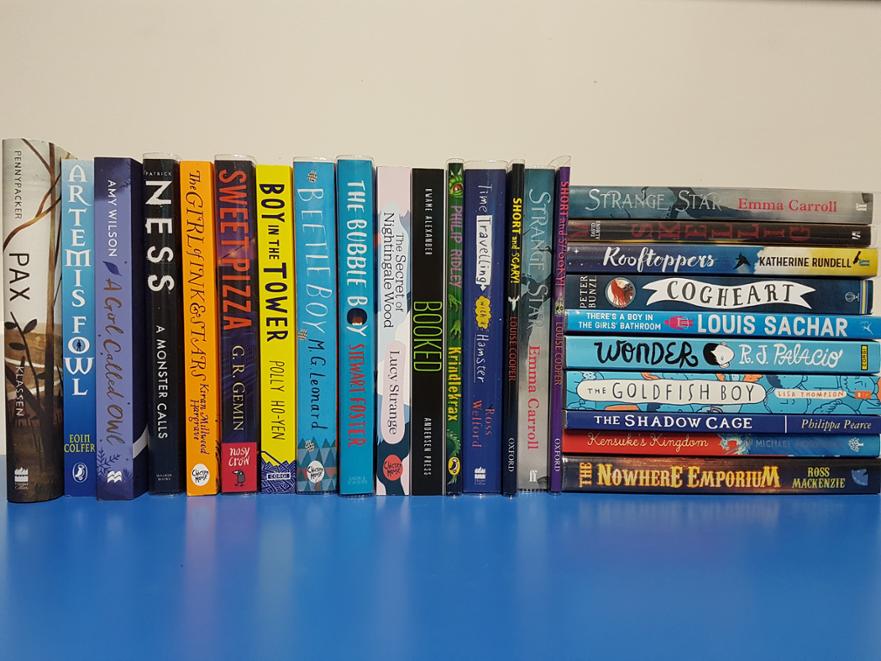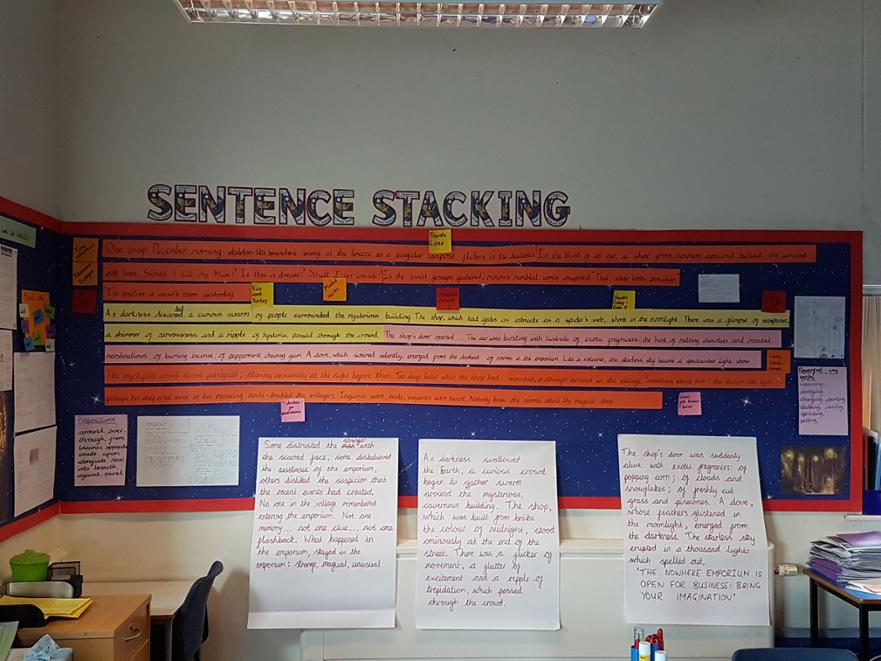2022-23
Oak Class will be taught by Miss R. Goodwin and Mrs C Strangwood
Our teaching assistant is Mrs S. Travis.
This is a key stage 2 class of year 6 pupils.
2023-24
Oak Class will be taught by Miss R. Goodwin
Our teaching assistant is Mrs S. Travis
This is a key stage 2 class of year 6 pupils.
Oak Classroom
Our classroom is located on the Upper Mall. Our cloakroom is shared with Durban class, where we can store our coats, PE kits and book bags. We take a huge amount of pride in our classroom environment and are motivated to produce high-quality work which can be displayed on our walls. We have a lovely reading corner in class with comfortable cushions, which is a relaxing place to go to read quietly.
Take a tour of our classroom.
Our Day
We usually begin each day with collective worship - participating in a range of whole school, key stage and class worship. This is followed by short basic skills English session – concentrating on learning spelling patterns, basic punctuation, grammar or various literacy word or sentence level requirements.
We split into groups for maths and English for the remainder of the morning. After lunch each day we have a guided reading session which is sometimes stand-alone and at other times either links to our science, geography/history or religious education work. The remainder of the time in the afternoons is devoted to the foundation subjects.
Oak Class Curriculum Planning
Please select from the links below.
| Oak Class Annual Curriculum Map 2022-23 | |
| Oak Class Curriculum Map Summer B |
Summer Term Second Half Topic Resources
Please click on the picture links to find a selection of topic resources for our children in Oak Class.
The resources are a great and fun way to support and supplement your child's learning in school, develop their knowledge of the topic and encourage their love of learning.
| Properties of Materials | |
| States of Matter | |
| Ancient Greece |
English - Reading
All children are given a reading book and reading record at the beginning of the week and there are opportunities for this to be changed at several points during the week. We encourage children to read on regular basis at home and ask that their reading record is signed (either by a parent or by the child) when they have completed some home reading.
In school reading is mainly taught through daily guided reading lessons in KS2 and all KS1 children have daily phonics lesson. We run a number of incentive schemes throughout the year to encourage the children to read as much as possible including a weekly award of 'reader of the week' in our key stage assemblies. During 2016/17 academic year we took part in a sponsored Readathon event, ran an extreme reading competition (encouraging children to read in unusual places) and each class visited the local library on at least a termly basis! We tell the children often that reading gives them knowledge and knowledge brings power – to influence their lives, get even better jobs, and earn more money. It’s more than that though – reading also brings huge amounts of pleasure. Please encourage them to read as much and as widely as possible.
English - Writing (including grammar, punctuation and spelling)
During year six, children will cover a range of fiction and non-fiction text types, which have been carefully chosen from current recommended lists to ensure they are of the highest quality. Text types will be analysed - generic features and author intent studied and children will have opportunities to write small parts of texts, specific sections of a text and whole texts as appropriate.
During the Autumn term children will study:
An adventure story unit (using flashbacks) - The Nowhere Emporium
A journalism unit - based on alternative versions of traditional tales
A geographical quest unit - Shackleton's adventure
During the Spring term children will study:
An adventure text based on a true story - Ice Trap
An adventure story - Kensuke's Kingdom
An animated short film - Paperman
In addition to the above, children will have numerous opportunities to write for a range of purposes across the range of curriculum subjects. Opportunities in the first few weeks alone will include: a persuasive advert and newspaper report in science; an autobiography and explanation text in RE and a diary entry in geography.
The teaching of spelling, grammar and punctuation is largely done during English lessons within the following structure:
- explicitly taught - through modelled writing
- practised - through word games and activities
- applied - when drafting, proofreading and editing.
There are also two early morning sessions dedicated to the discrete teaching of spelling and two sessions to the discrete teaching of grammar.
|
|
Upper KS2 - 5 & 6 English Objectives | [pdf 258KB] |
|
Maths
Maths is taught daily in Oak class and a mastery approach is used:
The Essence of Maths Teaching for Mastery
- Maths teaching for mastery rejects the idea that a large proportion of people ‘just can’t do maths’. ? All pupils are encouraged by the belief that by working hard at maths they can succeed. Pupils are taught through whole-class interactive teaching, where the focus is on all pupils working together on the same lesson content at the same time, as happens in Shanghai and several other regions that teach maths successfully. This ensures that all can master concepts before moving to the next part of the curriculum sequence, allowing no pupil to be left behind.
- If a pupil fails to grasp a concept or procedure, this is identified quickly and early intervention ensures the pupil is ready to move forward with the whole class in the next lesson.
- Lesson design identifies the new mathematics that is to be taught, the key points, the difficult points and a carefully sequenced journey through the learning. In a typical lesson pupils sit facing the teacher and the teacher leads back and forth interaction, including questioning, short tasks, explanation, demonstration, and discussion.
- Procedural fluency and conceptual understanding are developed in tandem because each supports the development of the other.
- It is recognised that practice is a vital part of learning, but the practice used is intelligent practice that both reinforces pupils’ procedural fluency and develops their conceptual understanding.
- Significant time is spent developing deep knowledge of the key ideas that are needed to underpin future learning. The structure and connections within the mathematics are emphasised, so that pupils develop deep learning that can be sustained.
- Key facts such as multiplication tables and addition facts within 10 are learnt to automaticity to avoid cognitive overload in the working memory and enable pupils to focus on new concepts.
|
|
Year 6 Maths Curriculum | [pdf 184KB] |
|
Career-related Learning
During key stage two children take part in career-related learning: broadening horizons and raising aspirations – showing children the vast range of possibilities open to them through visits, talks and assemblies. As part of the Oldham Pledge, children at St Margaret’s visit a careers fair. They also take part in an enterprise event and the new ‘Wonder Woman’ topic introduced in 2019 successfully challenges preconceptions about certain careers or pathways such as women in science, technology, engineering and maths (STEM). Furthermore, since 2019 school has linked with Positive Steps and are taking part in a programme providing career-based learning, in partnership with local businesses.
We are continuing to look further for opportunities to allow children to meet a wider range of people doing different jobs, in different sectors and at different levels, in line with the research from ‘Drawing the Future’ (2018). See video below for details of the the survey of over 20,000 pupils.
Things to Remember
PE will be taught by our specialist PE teachers as part of our partnership with Dream Big Sports. PE day will be on Wednesday - on this day, children need to come to school wearing their PE kit.
Please ensure your child brings in their reading book and reading record daily so we can read with them.
Homework will be given at the beginning of each half term and will need to be completed before the end of the half term. Children will have a choice of homework tasks to complete in their journals and should aim to earn at least 100 points each half term.


